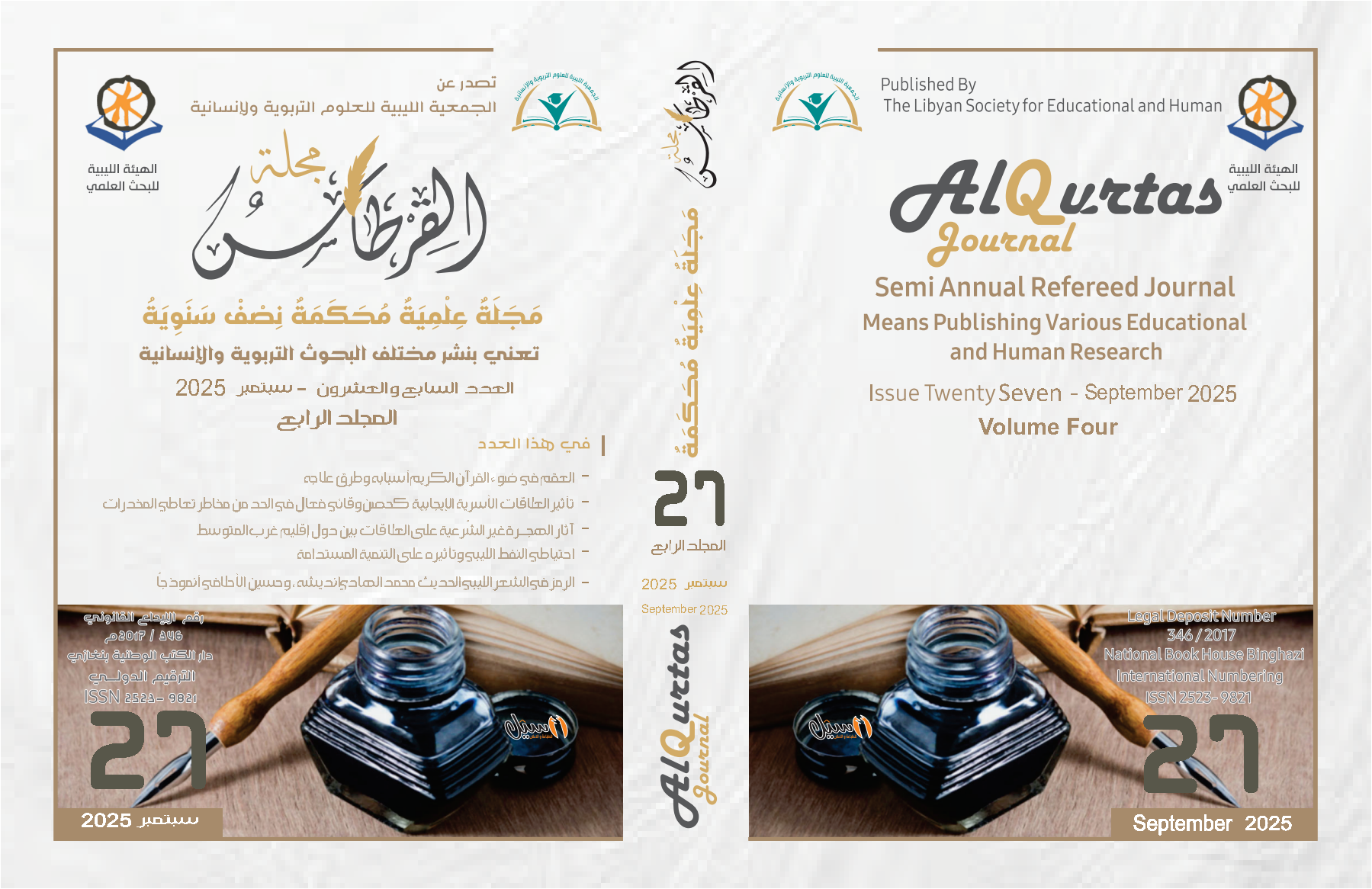Oil Reserves of Libya and Their Impact on Sustainable Development
Main Article Content
Abstract
This research seeks to examine the importance of Libya's oil reserves and their impact on achieving sustainable development. Libya possesses significant oil reserves, placing it among the leading oil-producing countries, particularly in the Arab region. This necessitates the formulation of effective policies to manage these resources in a way that supports the national economy and contributes to sustainable development. The study highlights that Libya's vast oil reserves play a crucial role in the national economy. However, the country has faced many economic, social, and political challenges due to poor management and weak planning. The research addresses various economic indicators, emphasizing the urgent need to adopt a development model that achieves economic diversification and reduces dependency on oil revenues. The paper also discusses the importance of enhancing the role of renewable energy alongside oil, and the significance of creating a comprehensive national strategy for managing oil revenues wisely and sustainably. The study analyzes regional and international experiences, especially those of countries that have succeeded in achieving sustainable development through strategic utilization of their natural resources. Libya's energy wealth, if well-governed, could serve as a powerful tool for advancing sustainable development, reducing poverty, and enhancing citizens' well-being. However, the lack of a clear development vision and institutional weakness has hindered the achievement of these goals. The study concludes that effective planning and strategic investment in the oil sector, in conjunction with renewable energy, can support Libya's sustainable development path-provided that reforms are made in governance, education, and infrastructure.
Downloads
Article Details

This work is licensed under a Creative Commons Attribution-NonCommercial 4.0 International License.

